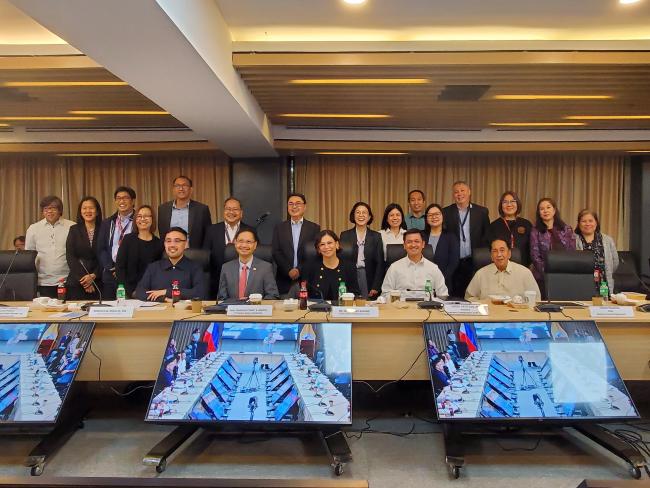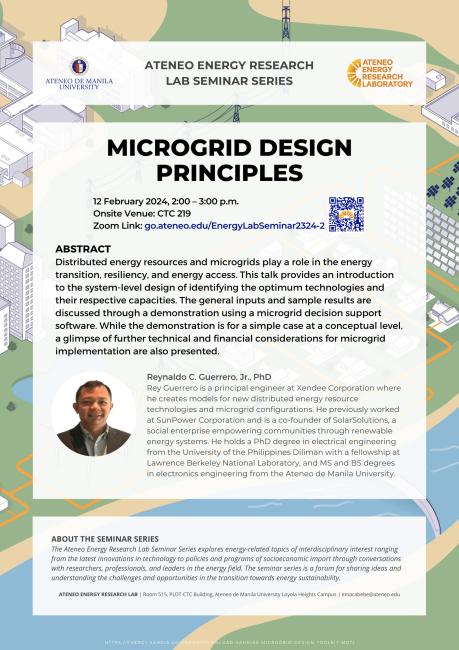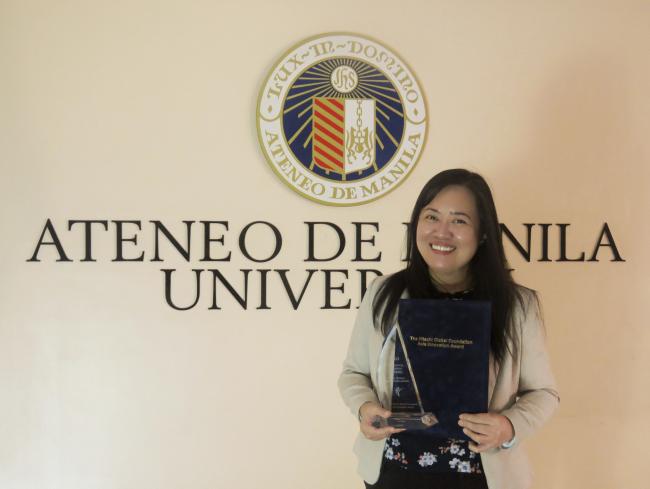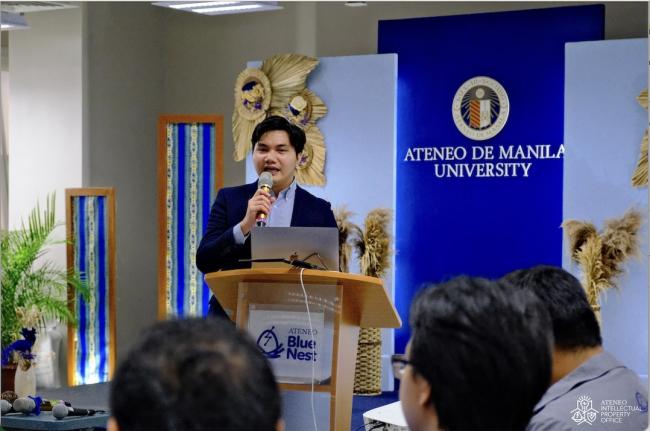Ateneo and the UN Sustainable Development Goals
Sustainable Development Goal 11
Sustainable Cities and Communities
Make cities and human settlements inclusive, safe, resilient and sustainable
The Ateneo de Manila University is a walkable campus. It has open and covered walkways, connecting buildings and allowing pedestrians to walk even when it is raining. Walkable paths are also signified by the red brick pavers, which, in contrast to concrete walkways, allows water to seep through and be absorbed by the soil beneath. Its hectares of forested areas and around 27 hectares of open fields and green spaces provide safe refuge for urban wildlife and a space for ecological and socio-cultural services to the community.
Additionally, Ateneo through the CCARPH engages communities in institutionalizing access to clean water, through participatory research, which involves working closely with local communities to identify their water-related needs, concerns, and priorities.
The University's Contribution to Sustainable Cities and Communities
The findings about Sustainable Development Goal 11 (SDG 11) indicate a positive trend in arts and heritage support, with moderate support in 2021 and significantly improving in 2022, reflecting a strong commitment to nurturing cultural activities and heritage preservation within sustainable urban environments, which continued into 2023. Arts and heritage expenditure demonstrated substantial financial investment in cultural activities and heritage conservation in 2021, remaining stable in subsequent years, highlighting the university's consistent financial support for such initiatives. Additionally, there was notable progress in adopting sustainable practices within SDG 11, encompassing sustainable commuting, remote work promotion, affordable housing, pedestrian-friendly campuses, and collaborative planning with local authorities, aligning to create sustainable, inclusive, and resilient cities and communities.
Ateneo University has made significant strides in aligning with Sustainable Development Goal 11 (SDG 11) related to sustainable cities and communities. Over the years, notable progress has been in adopting sustainable practices, emphasizing a commitment to creating environmentally friendly and resilient urban environments. Key initiatives include promoting sustainable commuting, endorsing remote work options, providing affordable housing solutions for employees and students, prioritizing pedestrian-friendly campuses, fostering collaboration with local authorities in planning and development, and maintaining high standards in construction. These efforts collectively enhance the sustainability and inclusivity of both the university campus and the surrounding communities, reflecting Ateneo's dedication to SDG 11.
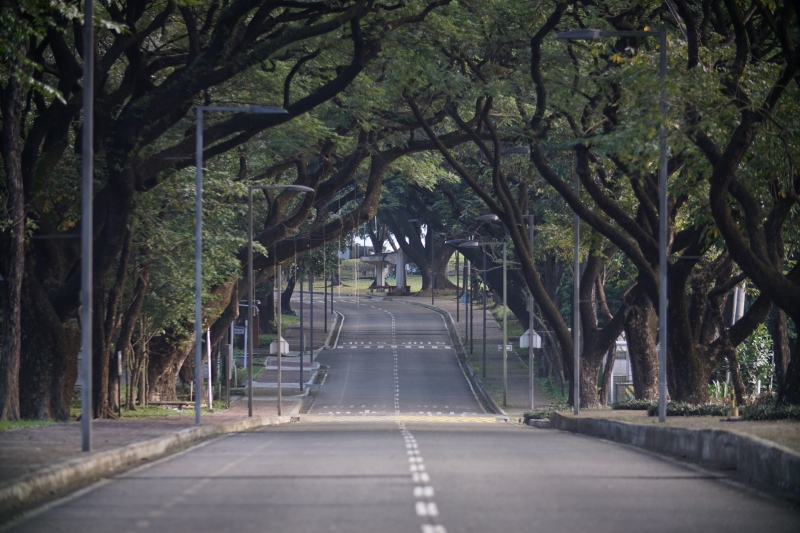
Pedestrian-Friendly Campus
Campus Bicycle Use
To promote the safety of bicyclists, pedestrians, and motorists on its campus, Ateneo de Manila University created comprehensive Bicycle Use Guidelines through its Campus Safety and Mobility Office. These guidelines, which took effect on May 30, 2018, prioritize the well-being of individuals within the university premises. Bicycle safety is emphasized in the guidelines, which encourage using helmets, proper hand signals, and regular maintenance of bicycles. Specific areas for bicycle use are designated on campus, including uni-directional bicycle lanes and shared-use paths, with regulations outlining speed limits and overtaking practices. The guidelines also stipulate specific requirements for bicycle equipment during certain hours and prohibit using headphones or cell phones while biking. Additionally, the guidelines for bicycle parking ensure that pathways are organized and unobstructed, with responsibility shared between university units and service providers.
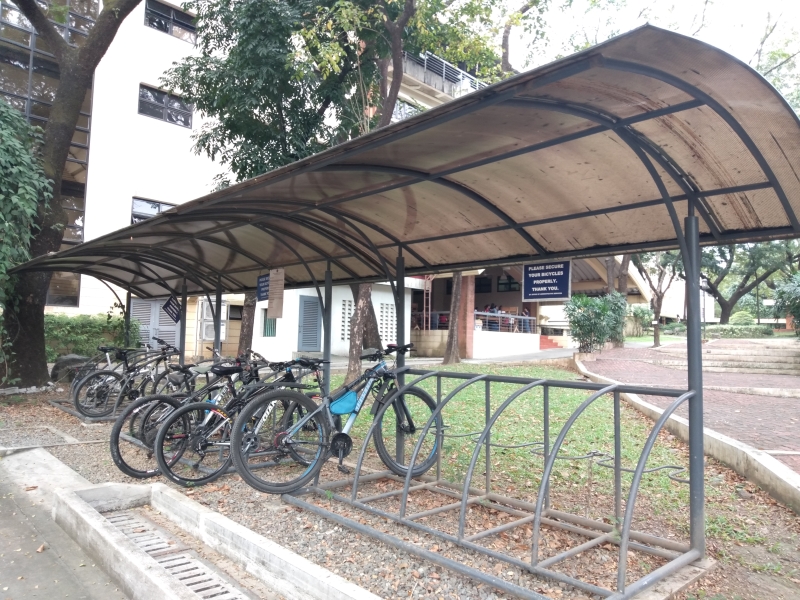
Bike Racks on Campus
E-Jeep Program
The E-Jeep program has gained widespread acceptance and adoption as a sustainable urban mobility option, as evidenced by its ridership data between March 2022 and September 2023. The program's initial numbers were humble, with two E-Jeeps serving around 1,500 riders. However, as the initiative gained momentum, so did the ridership. By September 2023, the program had served over 24,000 riders, marking a significant milestone in eco-friendly transportation options.
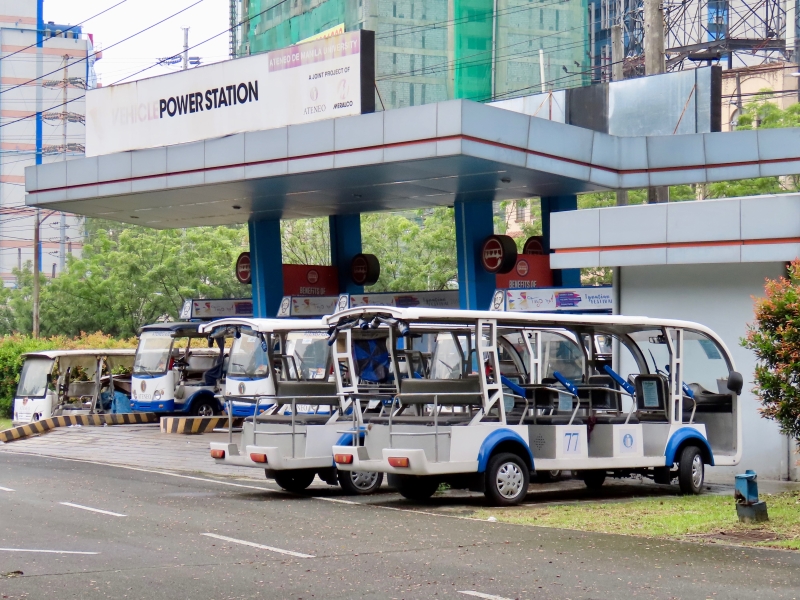
Ateneo EJeep Charging Station
The success of the E-Jeep program has not only transformed the urban commute but has also become a testament to the city's commitment to sustainability and efficient public transportation. As the program continues to evolve, it stands as a beacon of eco-conscious commuting, shaping a cleaner, greener future for urban mobility.
Coastal Cities at Risk in the Philippines (CCARPH)
The CCARPH project by Ateneo de Manila University and the Manila Observatory, led by Dr. Emma E. Porio, is bridging the gap between science, policy, and practice, both within the university and beyond. The project is making noteworthy progress in promoting integral ecology principles, gender-responsive resilience, and transformative climate justice to address important Sustainable Development Goals. It also integrates socio-technical divides and emphasizes community strategies for recovery through innovative programs, academic chairs, and global collaborations. The information is available in the "Coastal Cities at Risk in the Philippines Progress Report and Ways Forward" document.
The Vibrancy of Ateneo's Arts and Heritage
Ateneo de Manila University showcased its dedication to the arts and cultural expression through captivating performances. The Ateneo College Glee Club enchanted audiences with powerful renditions, while The Company of Ateneo Dancers celebrated dance diversity. Ateneo Blue Repertory and Tanghalang Ateneo presented thought-provoking plays, while "Zsazsa Zaturnnah the Musical... 'Yun Lang!" showcased Ateneo's creativity and storytelling prowess.

Responsible Waste Management
Responsible waste management, particularly for hazardous materials, is a primary focus at Ateneo De Manila University. The School of Science and Engineering (SoSE) adheres to a strict waste disposal policy to protect the environment and lab users. The rules address a variety of situations, including particular procedures for chemical spills, biological emergencies, and gas leaks. The university promotes safety in its proactive approach by stressing the proper use of personal protective equipment and safe disposal techniques. Ateneo De Manila University demonstrates its commitment to managing hazardous materials ethically and safely by actively contributing to environmental preservation while adhering to national regulations.
News and Features
HRep-Ateneo Project 5th Roundtable Discussion: Jobs/Connectivity and Blue & Green Economy
The fifth HRep-Ateneo roundtable on 7 February 2024, tackled labor, infrastructure, and the blue-green economy, with experts from various sectors. Morning sessions focused on Philippine employment trends and infrastructure's impact, while afternoon discussions centered on critical environmental issues and introduced blue-green economy scorecards for sustainable development.
Microgrid Design Principles (Ateneo Energy Research Lab Seminar Series)
The Ateneo Energy Research Lab and the Ateneo Department of Electronics, Computer, and Communications Engineering (ECCE) invite you to the talk: "Microgrid Design Principles" to...
ECCE's Macabebe wins Hitachi Global Foundation Outstanding Innovation Award
Dr Erees Queen B Macabebe, chair and associate professor of the Ateneo Department of Electronics, Computer, and Communications Engineering (ECCE), has won an Outstanding Innovation...
Protecting marks for startups: Trademark awareness session for science and technology entrepreneurship program (STEP) participants
As part of the onsite training session for the participants of the Science and Technology Entrepreneurship Program (STEP), the Ateneo Intellectual Property Office (AIPO), in...
Pagination
Events
HRep-Ateneo Project 5th Roundtable Discussion: Jobs/Connectivity and Blue & Green Economy
The fifth HRep-Ateneo roundtable on 7 February 2024, tackled labor, infrastructure, and the blue-green economy, with experts from various sectors. Morning sessions focused on Philippine employment trends and infrastructure's impact, while afternoon discussions centered on critical environmental issues and introduced blue-green economy scorecards for sustainable development.
Microgrid Design Principles (Ateneo Energy Research Lab Seminar Series)
The Ateneo Energy Research Lab and the Ateneo Department of Electronics, Computer, and Communications Engineering (ECCE) invite you to the talk: "Microgrid Design Principles" to...
ECCE's Macabebe wins Hitachi Global Foundation Outstanding Innovation Award
Dr Erees Queen B Macabebe, chair and associate professor of the Ateneo Department of Electronics, Computer, and Communications Engineering (ECCE), has won an Outstanding Innovation...
Protecting marks for startups: Trademark awareness session for science and technology entrepreneurship program (STEP) participants
As part of the onsite training session for the participants of the Science and Technology Entrepreneurship Program (STEP), the Ateneo Intellectual Property Office (AIPO), in...

